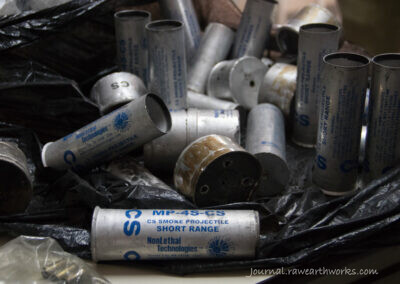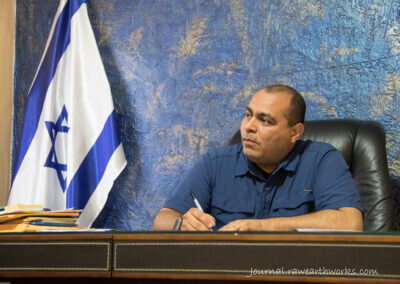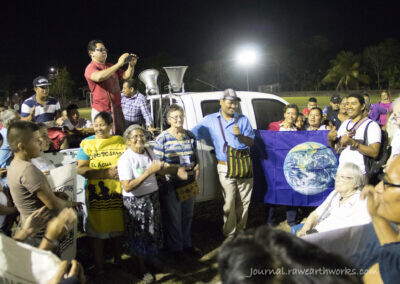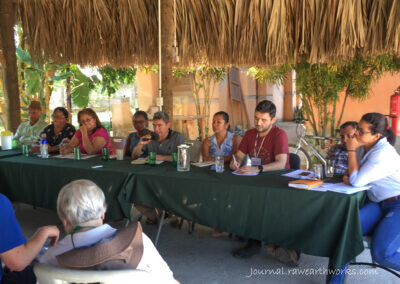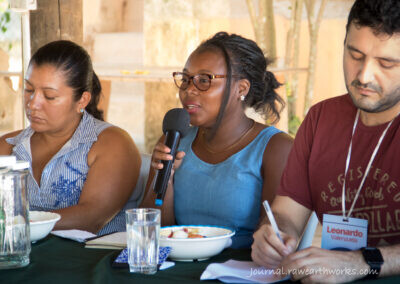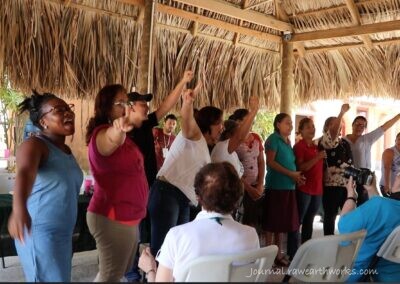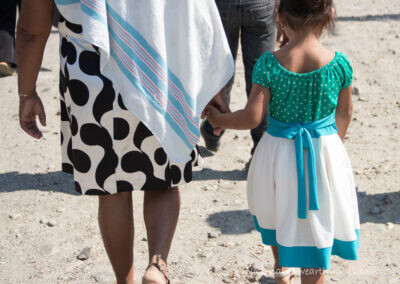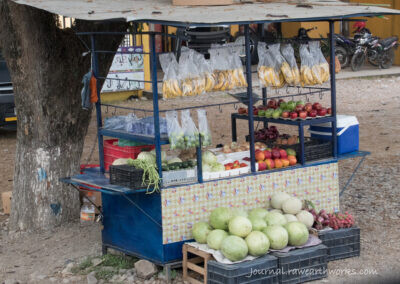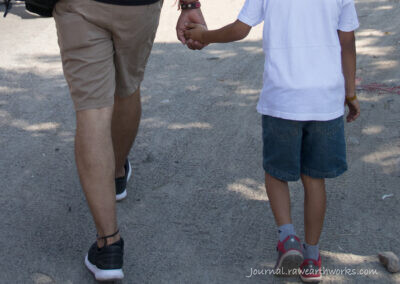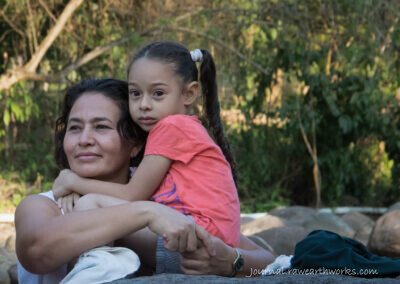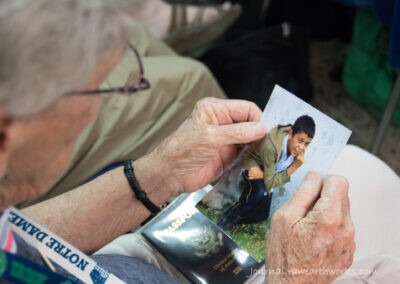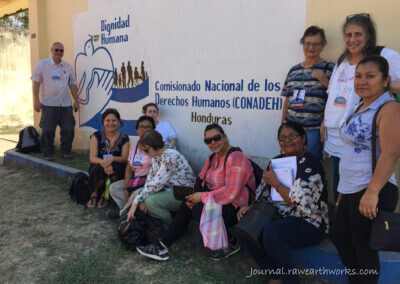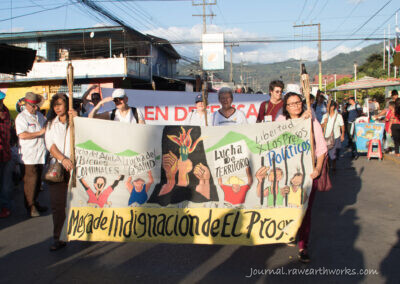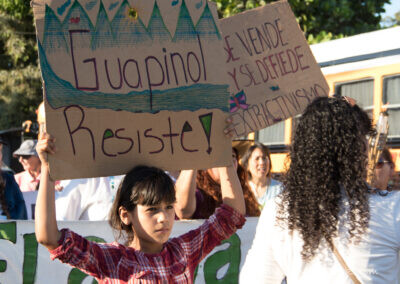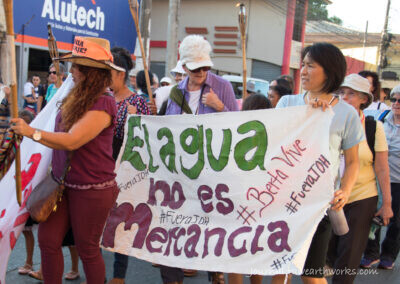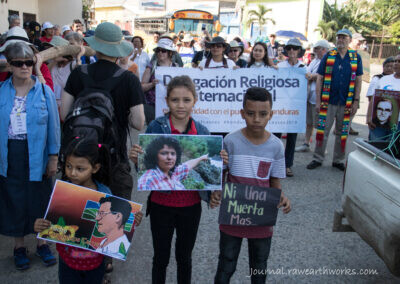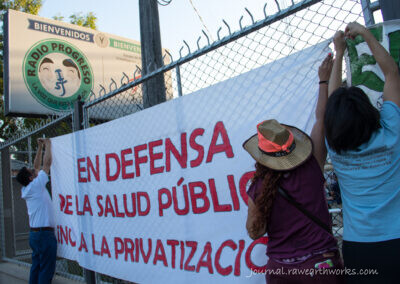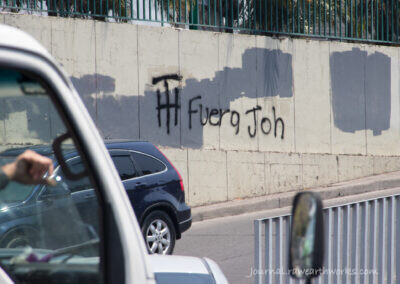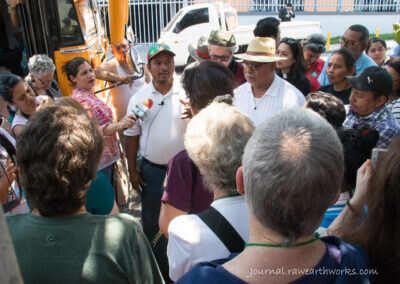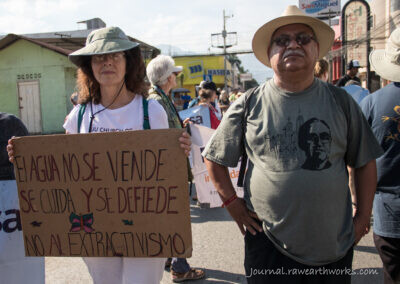Featured Stories – Honduras – Root Causes of Migration
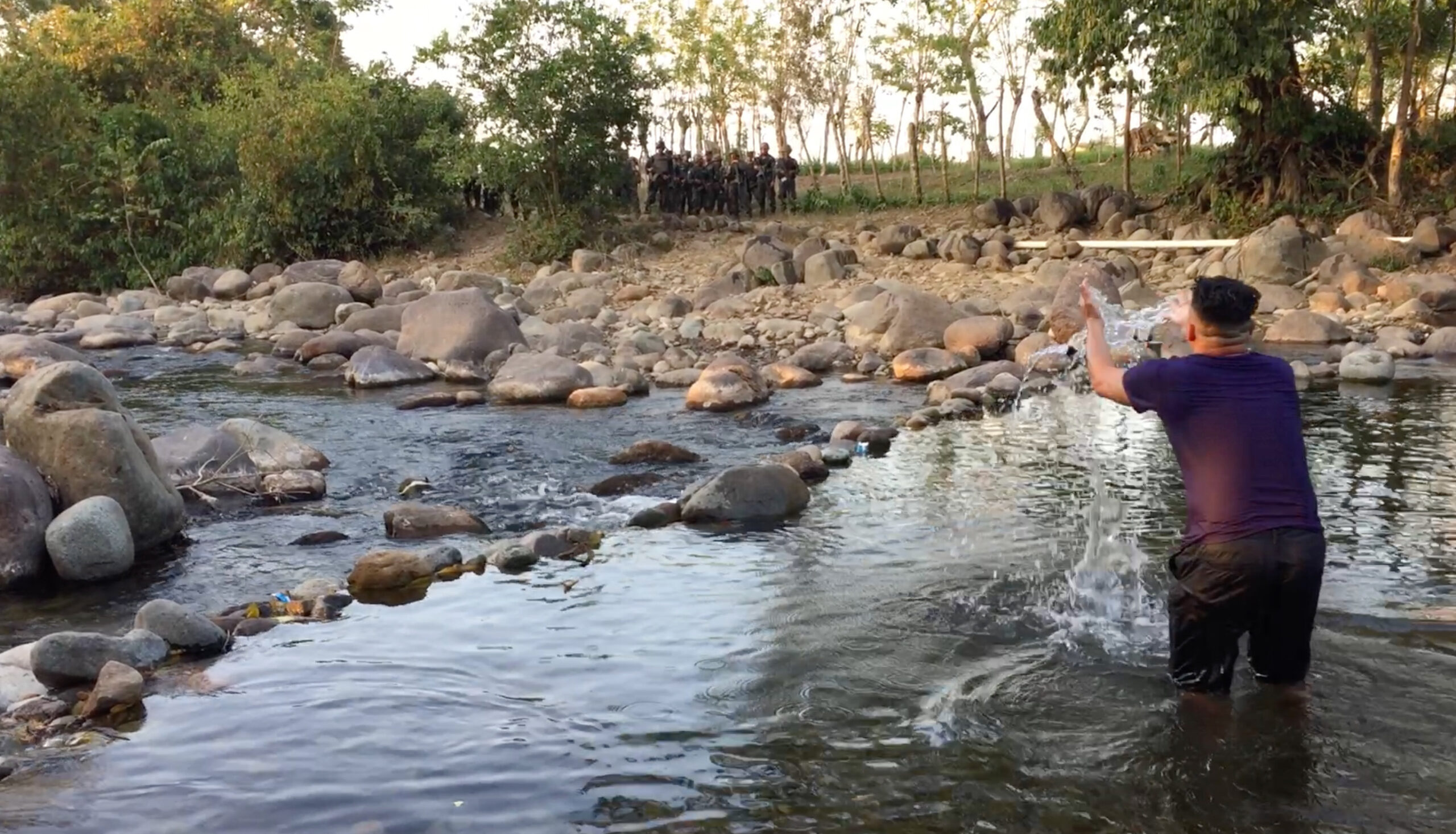
In 2017 and 2018, many thousands of people from Central America joined “migrant caravans” and headed en-masse towards the southern border of the US. The sheer number of people was alarming to many and caught the attention of the world. Most caravans originated in Honduras, and a large percentage of those traveling north were Hondurans, although many joined from El Salvador and Guatemala also.
In early 2019, a delegation of 75 interfaith leaders and social justice advocates traveled to Honduras with the specific purpose of better understanding the root causes of this mass migration. The planning was coordinated between groups in the US and HN that had long standing ties. Our hosts in HN had decades of human rights experience with the communities whose rights were being violated and had deep knowledge of the complex histories and current threats and dynamics.
At meetings with community groups and women’s groups in various regions of the country, our delegation always asked what we, as US citizens, could do to influence our country to act in ways that would be helpful to their situation. The answers were always simple and unequivocal. Make your government stop supporting coups (2009) and make your government stop funding the HN security forces. This money does not provide security to Honduras communities and citizens. It provides funding and training to security forces that protect the corporations and oligarchs that mine the natural resources that threaten the rivers, that grow Palm Oil that threatens the land, that attempt to build mega-dams and tourist destinations that will displace entire communities (many of them indigenous) that have inhabited the land for centuries. At the same time that corporations and the elite are being protected with security funding from the US, the people of Honduras are the prey of gangs and victims of police and security force violence. Women face the additional threat of domestic violence in an extremely patriarchal society. All of this is met with near total impunity.
Río Guapinol – The Guapinol community Protects its Water
Honduran military police (the elite US trained Xatruch Batallion) protects mining interests and faces the Guapinol community and the delegates as they gathered at the Guapinol River in March of 2019. In 2014, a mining concession was granted in a protected national park at the headwaters of the Guapinol River and other regional water sources, threatening the survival of communities in the northern Bajo Aguán region.
Military Police Protecting Mining Interests
Members of Xatruch battalion watch Guapinol community and delegates on opposite bank of the Guapinol River. Behind them, fencing defining mining interests of Inversiones Los Pinares. This unit has had training from the U.S. in counterinsurgency operations, and is known for serious past human rights abuses.
Tear Gas Canisters
Made in Homer, Pennsylvania, these canisters were gathered after a major confrontation between Guapinol water protectors and the HN military police in 2018.
Governor of the Department of Colón
A subgroup of the delegation, along with a land and water defender from the Guapinol community, met with Carlos Ramón Aguilar – Governor of the Department of Colón. He defended the use of a militarized police force, comparing them to UN “blue helmets”. Constitutionally, the military’s actions are limited to issues of sovereignty—i.e., border protection and national defense.(and no… he did not give a satisfactory explanation when asked about the Israeli flag)
Guapinol Community Gathers
Following the tense confrontation with military police at the Guapinol River, the delegates gather with the community at their soccer field and share music and listen to speeches.
Tocoa Panel on Roots of Migration
The delegation heard from community and land and water defenders in the northern Bajo Aguán region of Honduras. As they fight to defend their water source, their communities face death threats and violence. 8 community members have been unjustly imprisoned for 2 years in a process condemned internationally and by the UN.
Tocoa Panel on Roots of Migration – The Garifuna
The Afro-Indigenous Garifuna population in northern HN has faced extensive displacement, kidnappings, murder and disappearances related to land grabs for the purpose of tourist development and foreign investment along the Caribbean coast. The culturally rich and unique Garifuna population has inhabited this land since the eighteenth century.
Families at Risk
In San Pedro Sula, parents are extremely protective of their children in public spaces. Escalation of gang violence, kidnappings, gang recruitment, extortion and death threats, lead many parents to the US border with their children.
African Palm Plantation
The Honduran governments’ embrace of the Palm Oil industry threatens the land and livelihoods of rural Honduran farmers.
Families at Risk
In San Pedro Sula, parents are extremely protective of their children in public spaces. Escalation of gang violence, kidnappings, gang recruitment, extortion and death threats, lead many parents to the US border with their children.
The banks of the Guapinol River
The Guapinol community talks with delegates about threats to their community and their river and water source from the mining concession granted in a protected area up-river from their village.
The banks of the Guapinol River
The Guapinol community talks with delegates about threats to their community and their river and water source from the mining concession granted in a protected area up-river from their village.
Murdered Awaiting Asylum
The family of this young man talked with the delegation. 2 members of the delegation had met him along the border in Mexico shortly before his murder.
March of the Torches – San Pedro Sula
(Panel 1 of 4) – Following the 2009 coup that overthrew Manuel Zelaya the left leaning democratically elected president of Honduras, the right-wing National Party moved into power. In 2013, the National Party’s Juan Orlando Hernandez (JOH) became president in an election that many international observers denounced as fraudulent. By 2015, proof of extreme corruption in the National Party brought an estimated 60,000 protestors into the streets of Tegucigalpa, many of them carrying torches. With the rallying cry of “Fuera JOH” (Out with Juan Orlando Hernandez), this “March of the Torches” became a weekly Friday occurrence in cities across Honduras, to protest the Hernandez government.
March of the Torches – San Pedro Sula
(Panel 2 of 4) – In 2015, stunning revelations of corruption by the right wing National Party brought an estimated 60,000 protestors into the streets of Tegucigalpa for what became weekly Friday “March of the Torches”. The revelations of corruption included admissions by the National Party that more than $200 million was stolen from the coffers of the country’s social security fund under their watch. In addition, President Juan Orlando Hernández admitted that some of the stolen money was funneled into his 2013 election campaign.
March of the Torches – San Pedro Sula
(Panel 3 of 4) – In 2019, these weekly Friday “March of the Torches” continued in the northern city of San Pedro Sula. With motorists yelling “Fuera JOH” from their windows as they pass, the marchers call for an end to the violence and persecution of water and land protectors, freedom for political prisoners, defense of public health funding that had been gutted since the massive theft of social security funds by the National Party, and an end to the near total impunity of the government and security forces.
March of the Torches – San Pedro Sula
(Panel 4 of 4) – The Water Is Not For Sale. Demands that the government start protecting the Honduran people and stop enriching corporations, foreign investors and the elite at the expense of the Honduran people.
March through San Pedro Sula (Stations of the Crisis)
Paying tribute to Archbishop Oscar Romero, 39 years after his murder. Also celebrating the causes he fought for and their relevance to Honduras today.
Fuera JOH
The rallying cry of the movement to remove Juan Orlando Hernández (JOH) from office. (JOH Out!) Seen along the road in Tegucigalpa.
Lenca Interview in Tegucigalpa
Indigenous Lenca man explains why members of his community have taken refuge inside a foreign embassy. A member of the elite oligarchy has claimed ownership of their land and already members have been killed while others face grave threats.


